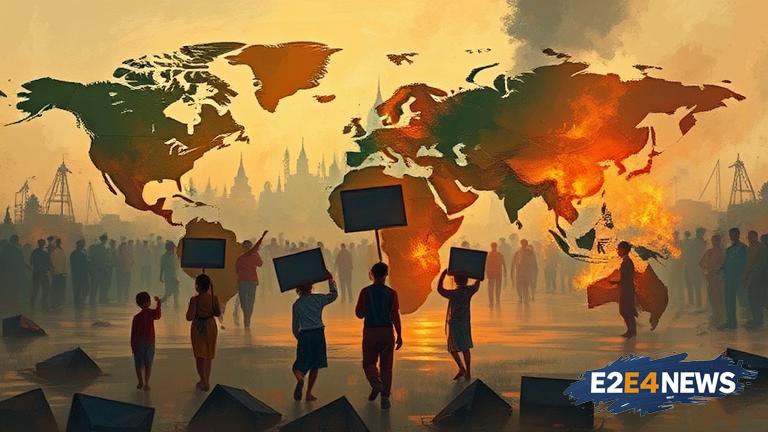The humanitarian crisis in Myanmar has been ongoing for several years, with the military junta facing widespread criticism for its handling of the situation. The United Nations has been at the forefront of international efforts to pressure the regime into reform, with the Security Council passing numerous resolutions calling for an end to violence and respect for human rights. Despite these efforts, the situation on the ground remains dire, with reports of widespread human rights abuses, including forced labor, torture, and extrajudicial killings. The crisis has also had a devastating impact on the country’s economy, with trade and investment plummeting in recent years. The international community has imposed numerous sanctions on the regime, including an arms embargo and travel bans on senior officials. However, these measures have had limited impact, with the regime continuing to receive support from key allies, including China and Russia. The United Nations has also been working to provide humanitarian assistance to those affected by the crisis, including food, shelter, and medical care. However, the regime has imposed numerous restrictions on the delivery of aid, making it difficult for agencies to reach those in need. The situation has also had a significant impact on regional stability, with neighboring countries expressing concern over the potential for the crisis to spill over into their territories. The Association of Southeast Asian Nations (ASEAN) has been working to find a solution to the crisis, but its efforts have been hindered by a lack of cooperation from the regime. The United States and other Western countries have also been actively engaged in efforts to resolve the crisis, including through the imposition of sanctions and the provision of humanitarian assistance. However, the regime has shown little willingness to compromise, and the situation remains deadlocked. The humanitarian crisis in Myanmar has also had a significant impact on the country’s ethnic minority groups, who have long faced discrimination and persecution at the hands of the regime. The crisis has also had a devastating impact on the country’s environment, with reports of widespread deforestation and pollution. The international community has called for the regime to take immediate action to address these issues, but so far, there has been little response. The situation in Myanmar is a complex and multifaceted one, with deep-rooted historical, cultural, and economic factors at play. The international community must continue to work together to find a solution to the crisis, one that addresses the root causes of the conflict and provides a sustainable and equitable future for all of the country’s citizens. The United Nations and other international organizations have a critical role to play in this effort, providing humanitarian assistance, promoting human rights, and supporting efforts to build a more just and equitable society. The crisis in Myanmar is a stark reminder of the need for international cooperation and collective action to address the world’s most pressing challenges. It is only through working together that we can hope to build a more peaceful, prosperous, and sustainable world for all. The international community must continue to pressure the regime to reform, while also providing support to those affected by the crisis. This includes not only humanitarian assistance, but also support for efforts to build a more just and equitable society, including through the promotion of human rights and the rule of law. The situation in Myanmar is a complex and challenging one, but with collective action and a commitment to human rights and dignity, it is possible to build a better future for all of the country’s citizens.
